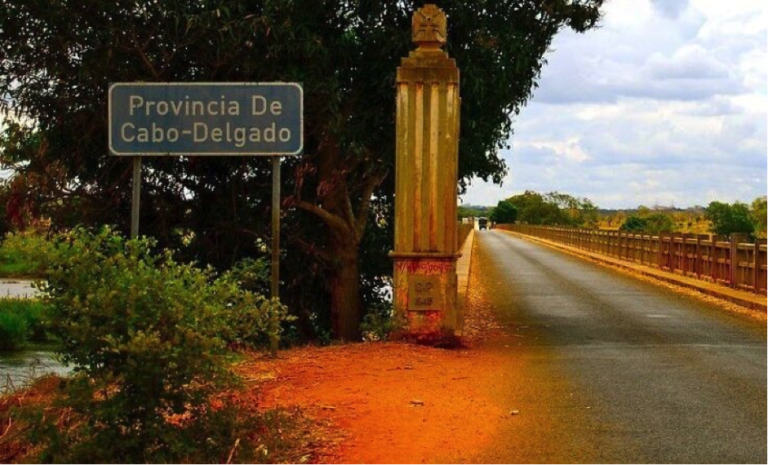The Islamist Insurgency in Mozambique, is SADC doing enough?

Allen Tavaziva, Research Analyst, Foreign Policy & Diaspora Studies Policy Lab
atavaziva@africacfsp.org
Ahlu Sunna wa Jama (ASWJ), an Islamic militant organization, has solidified its power in northern Mozambique through a violent insurgency. As the crisis intensifies, the prospect of a Southern African Development Community (SADC) intervention is becoming increasingly likely. If the bloc can resolve its differences and implement a joint military-humanitarian intervention, a larger regional crisis may yet be averted.
The security situation in northern Mozambique is rapidly deteriorating and has become a major threat to regional security. Ahlu Sunna wa Jama (ASWJ), an Islamic militant organization, has solidified its power and ideology in northern Mozambique through violence and intimidation. Efforts by the Mozambican government to pacify the region and remove these Islamic State-linked militants have thus far failed. This raises the question: is it time for the Southern African Development Community (SADC) to consider a military intervention in Mozambique?
Delving into the background of the insurgency is necessary in order to navigate the best way forward. In many ways, the insurgency reflects Mozambique’s deep internal division between the underdeveloped north, home to the Mozambican National Resistance (RENAMO), and the capital in the south, dominated by the Mozambique Liberation Front (FRELIMO). FRELIMO and RENAMO fought a bloody civil war from 1977 to 1992 which left the country deeply divided.
Despite the two parties signing the Rome General Peace Accords in 1992, the dominance of FRELIMO in high-ranking positions within the government meant that development was largely concentrated in the south, while largely ignoring many northern communities in the process. The monopolization of state institutions by FRELIMO, their failure to implement government decentralization, and the incomplete process of disarmament, demobilization, and reintegration (DDR) left many grievances unresolved and paved the way for a resurgence of political violence in 2013.
The latest insurgency in 2017 is not directly linked to RENAMO, and is instead the product of a little-known radical subgroup of Islam, thought to have been influenced by Aboud Rogo, the late Kenyan Muslim cleric. However, the insurgency shares many of the same political and economic grievances that have long plagued northern Mozambique. The insurgents have played upon existing inequalities and have taken advantage of high levels of poverty and unemployment in the north in order to attract recruits.
Instead of addressing the above-mentioned problems, the government initially sought to downplay reports of violence, restrict journalists’ access to the area, and bring in private military contractors who have thus far failed to reduce the violence. As the crisis in Mozambique intensifies, some are beginning to look towards the SADC for a possible solution.
What are the prospects of regional intervention?
The possibility of a SADC intervention in Mozambique is premised on the SADC Mutual Defence Pact, which was adopted in 2003 and expanded upon the Protocol on Politics, Defence and Security Cooperation of 2001. Article 6(1) of the Pact clearly states that “an armed attack against a State Party shall be considered a threat to regional peace and security and such attack shall be met with immediate collective action.” Article 6(2) further states that such actions are mandated by the summit based on the recommendation of the Organ for Politics, Defence and Security. Article 6(3) and Article 6(4) stress the importance of states participating collectively where appropriate, and reporting to the African Union Peace and Security Council (AU PSC) and the United Nations Security Council. The above protocols and procedures suggest that a military intervention in Mozambique is indeed warranted.
Although SADC has expressed humanitarian and security concerns regarding the insurgency in Cabo Delgado, such concerns have not translated into pragmatic action. After Mozambique issued a formal request for assistance to regional actors in May 2020, a solid plan has yet to materialize. As the crisis worsened, SADC leaders met again in Botswana on November 27, 2020 for SADC’s Summit Troika of the Organ on Politics, Defence and Security, which heavily focused on the situation in Cabo Delgado. However, rather than coming to a firm agreement on the best way forward, SADC leaders decided to deliberate further on the issue in January 2021, but the meeting was postponed indefinitely. The hesitancy among SADC member states to come to a firm agreement underscores the lack of political will embedded in the regional body.
Perhaps the biggest roadblock to SADC action is Mozambique’s president. Although Mozambique requested support from SADC, President Nyusi is reluctant to open Mozambique’s borders to foreign troops, choosing instead to rely on private military contractors, namely the Dyck Advisory Group. This has put the regional body in a delicate situation. On one hand, SADC recognises the importance of respecting Mozambique’s sovereignty. On the other hand, failing to intervene risks the further spread of instability in the region.
What should SADC consider?
A military intervention by SADC is both necessary and has precedent. As a regional body, SADC was deeply involved in peace-keeping operations in the Democratic Republic of the Congo (DRC), quashing the M23 rebels under the Force Intervention Brigade (FIB). This provided SADC’s forces valuable military experience within the bloc. SADC’s success in the DRC shows that an intervention in Cabo Delgado is feasible, if well-coordinated. Therefore, SADC should work with the Mozambican government to consider the formation of a brigade similar to the FIB, focusing on intelligence collection and military operations in Mozambique. SADC could model the brigade based upon the G5’s Sahel joint force, which can operate across bloc borders without prior authorization.
While a military intervention is indeed warranted, focusing solely on military operations seldom works when combating violent extremism. Humanitarian aid and developmental assistance are also required. A joint military-humanitarian intervention by SADC stands as the best possible chance to eradicate violent extremism in Cabo Delgado. In this regard, SADC should implement a regional Combating Violent Extremism (CVE) program designed to reduce radicalization through empowering and educating at-risk communities. Additionally, SADC should collaborate more closely with the African Union (AU) to implement and enforce existing policies such as the African Union Plan of Action on the Prevention and Combating of Terrorism. Strengthening AU and UN counter-terrorism policies could significantly reduce future violence in Mozambique if implemented collectively.
If SADC can act collectively, win approval from Mozambique to intervene, and focus on a joint military-humanitarian approach, a larger crisis in northern Mozambique may yet be averted. However, if the bloc continues to endlessly debate the best path forward, increasing violence and instability will likely follow.


